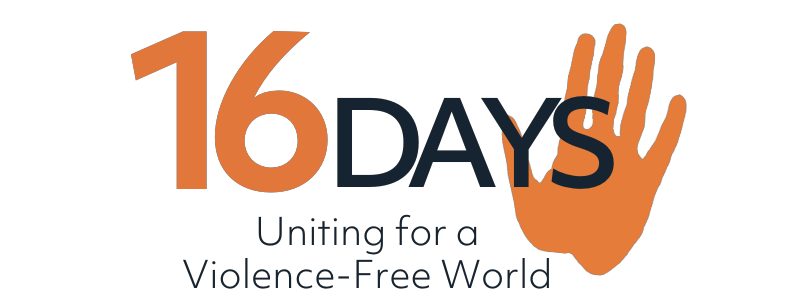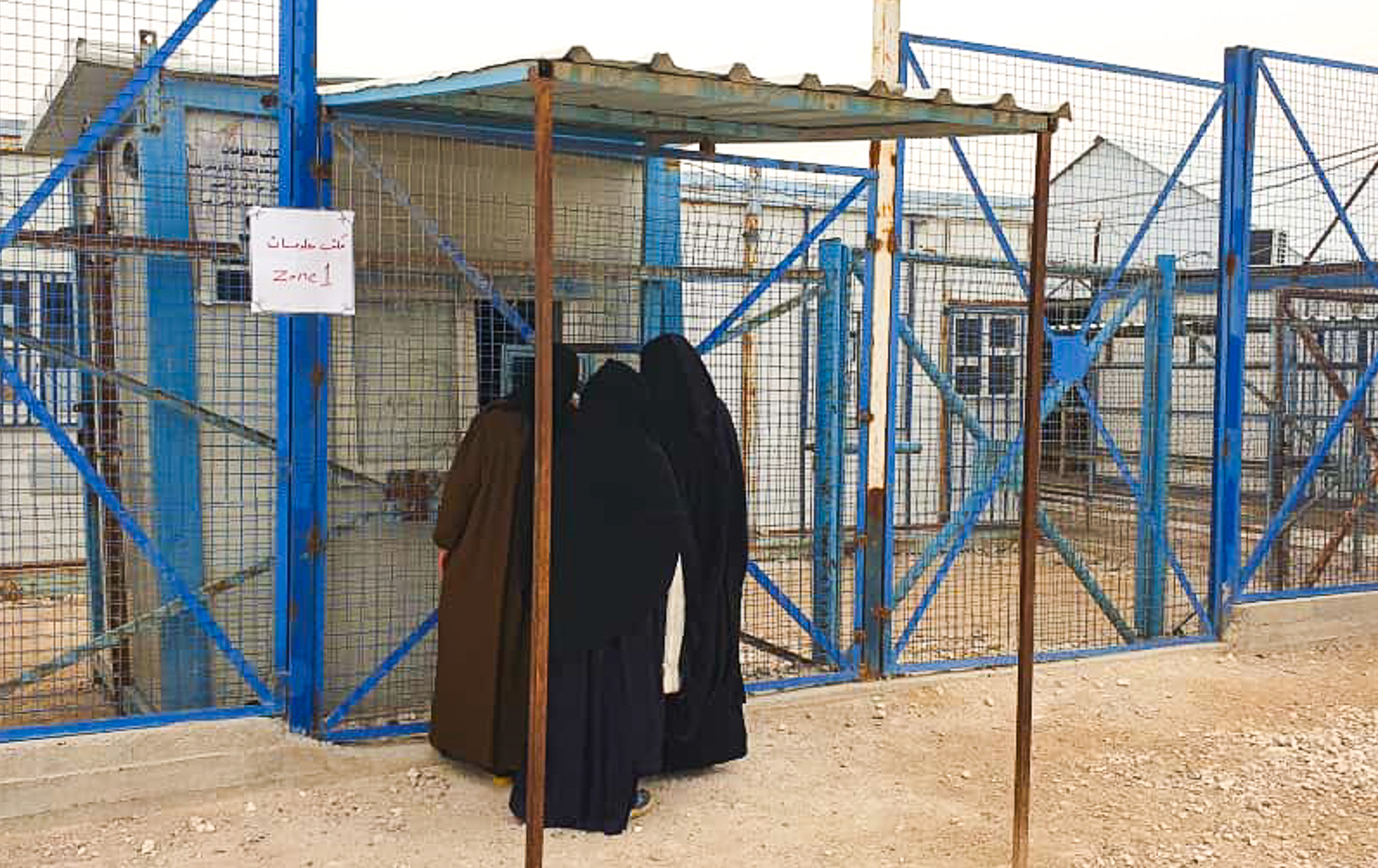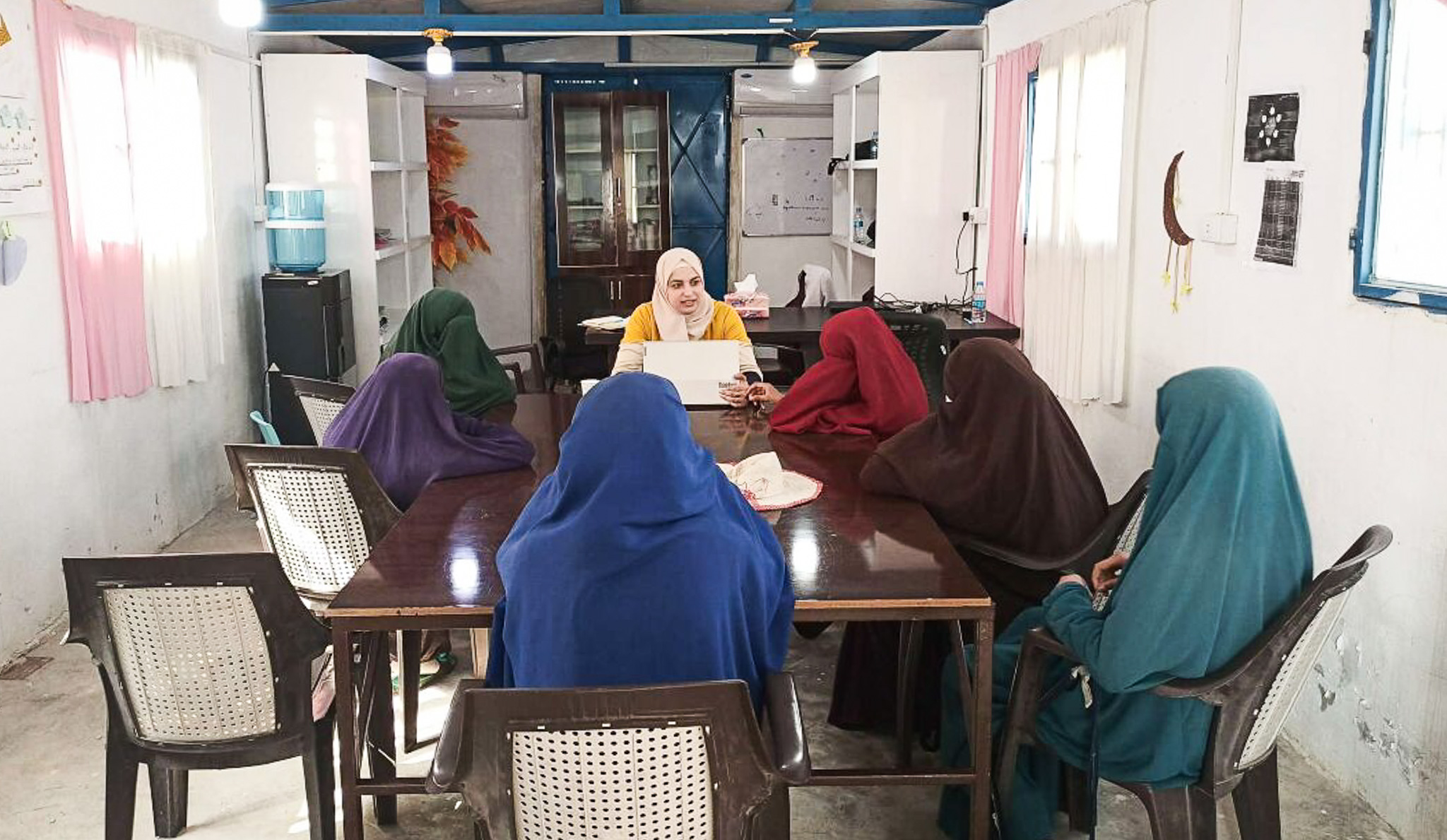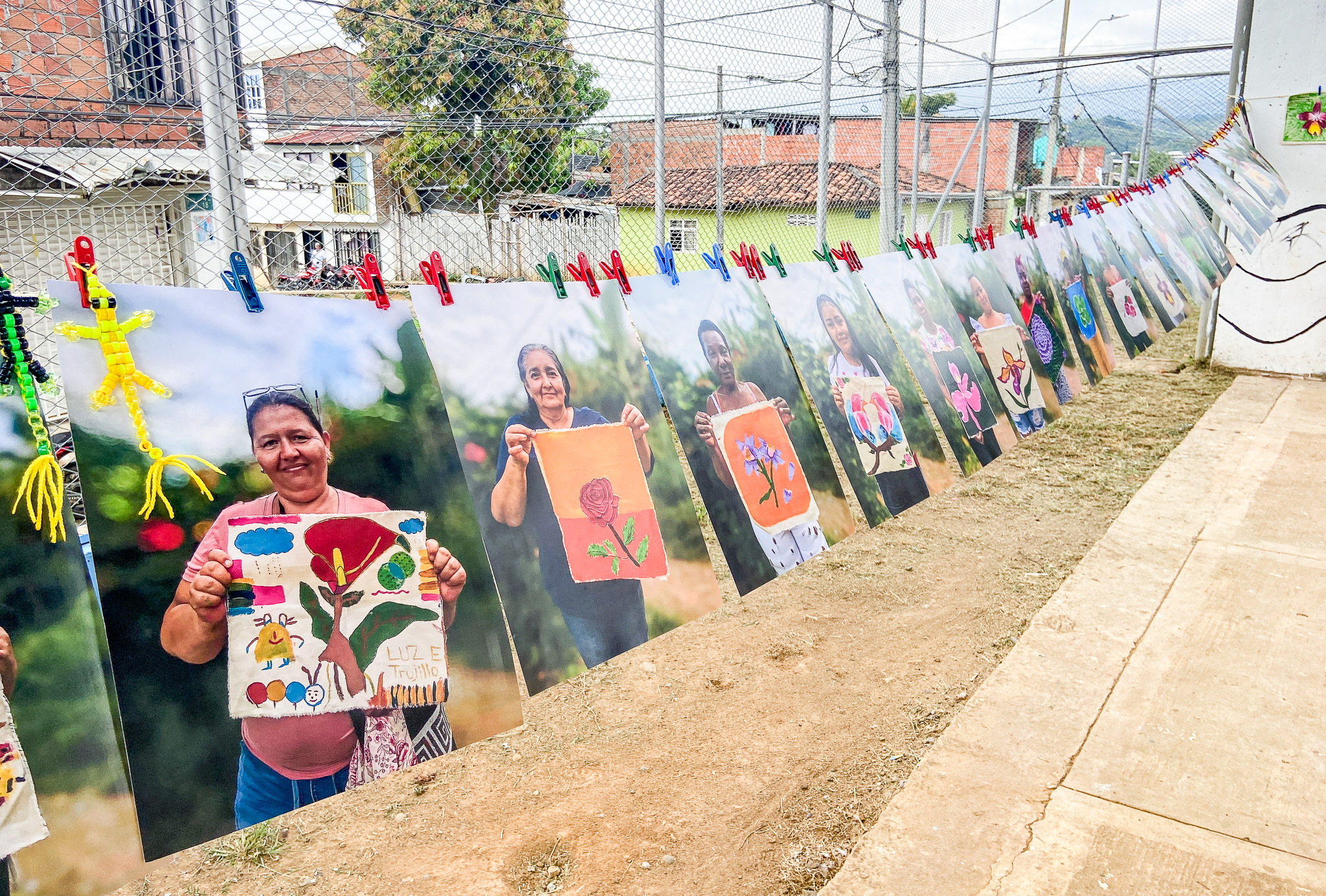
At Blumont, the 16 Days of Activism Against Gender-Based Violence (GBV) is a time to focus on efforts that are important every day of the year. In 2023, we are “Uniting” alongside other organizations for a violence-free world. Our teams are committed to preventing, reporting, and responding to GBV in the communities we work in.
Prevention starts with awareness–we equip each community with the knowledge they need to know their rights, including what GBV is and how to report it. We have systems in place for reporting GBV and to ensure that survivors receive the attention they deserve.
Syria
In northeast Syria, residents of two displacement camps always have someone they can go to for help.
Our team is readily available at multiple information desks stationed throughout the camps. While most residents visit the desk to report needed repairs, lighting outages, or other issues, they can also come to report instances of GBV. Whatever the issue, our team members are quick to refer each case to the right department or organization to follow up on concerns.

At information desks throughout the Syrian displacement camps, residents can ask about services, item distributions, and repairs. Additionally, they can report GBV incidents or request support.
“[The desks are] a safe place for women and girls inside the camp to come and make a complaint,” said Hayastan, our senior protection officer.
Victims or witnesses of GBV don’t need to worry about being seen by others at the desk. They easily blend in with neighbors who have dropped by to inquire about repairs or resources. “It doesn’t mean they are victims of GBV if they’re at the desks. They could be reporting a water challenge, and men and boys come, too,” said Hayastan.
Our teams in Syria also organize awareness sessions on topics on a range of topics of interest or concern for camp residents, including preventing GBV. Women and girls can learn about their rights and how to identify GBV in their own lives. A few women who attended the sessions realized they were being harassed at the market and reported the case, knowing their rights.

Awareness sessions in displacement camps in northeast Syria cover topics such as child marriage; gender-based violence; and sexual harassment, exploitation, and abuse.
Camp residents who come to these sessions are also encouraged to seek psychosocial support if they’ve experienced GBV. “Violence has a profound impact on women and can lead to a recurrence of such violence if it is not addressed,” said one participant in Syria. Support from our teams and from others in the community help women work through trauma.
Jordan
At Za’atari Refugee Camp in Jordan, we host informational sessions for all genders and different age groups on GBV, early marriage, and sexual harassment. GBV cannot be considered an issue “just” for girls and women. When all types of community members know the dangers of GBV, they can work together to prevent it. “GBV prevention involves fostering a culture of respect, equality, and education while holding perpetrators accountable,” said Nadeen Khost, program director for the Uplift program at the camp.
With separate sessions for children and adults, everyone can feel comfortable asking questions. Children are now speaking up more when they feel uncomfortable, and parents are more aware of how to make their children feel safe.

Parents, children, volunteers, and other community members of Za’atari Refugee Camp can learn about the risks and dangers of GBV, as well as how to report it from the Uplift team.
Teenagers who participate in the Uplift program’s extracurricular group, TIGER, learned how to use an empowering mobile phone application called Amali. Amali is a digital resource for information on rights, reporting GBV, and accessing mental health support. Equipped with Amali, TIGER students can feel supported whenever and wherever.
After learning about GBV in TIGER, one student has taken the initiative to make her a community a safer place. Tasneem, a teenager living in the camp, is working with her school administration to develop a presentation on harassment for the younger students.
Colombia
Our teams in Colombia also support displaced women–including survivors of GBV and other types of violence.
Services include emergency psychological aid and longer-term support for women to process, heal, and move forward. The Closing Gaps and Acogida programs host mutual support groups for Colombian and Venezuelan women. Each group meets with a Blumont psychologist for several months, spending each session learning more about their emotions and talking about their experiences.

Women in a mutual support group in Santander de Quilichao, Colombia, painted flowers to symbolize their personal growth and transformation.
Together, the women release painful experiences, strengthen their self-esteem, and realize they are not alone.
Lisa Rodriguez, our protection coordinator for Closing Gaps, said, “We help them regain the confidence to believe in themselves to face pain and validate the strength they have had to resist difficult experiences and empower themselves to set limits to the oppressions imposed by the patriarchal system.”
“I’ve learned women don’t have to, and should not, be quiet and silent,” said Nora, a support group member in Bucaramanga.



